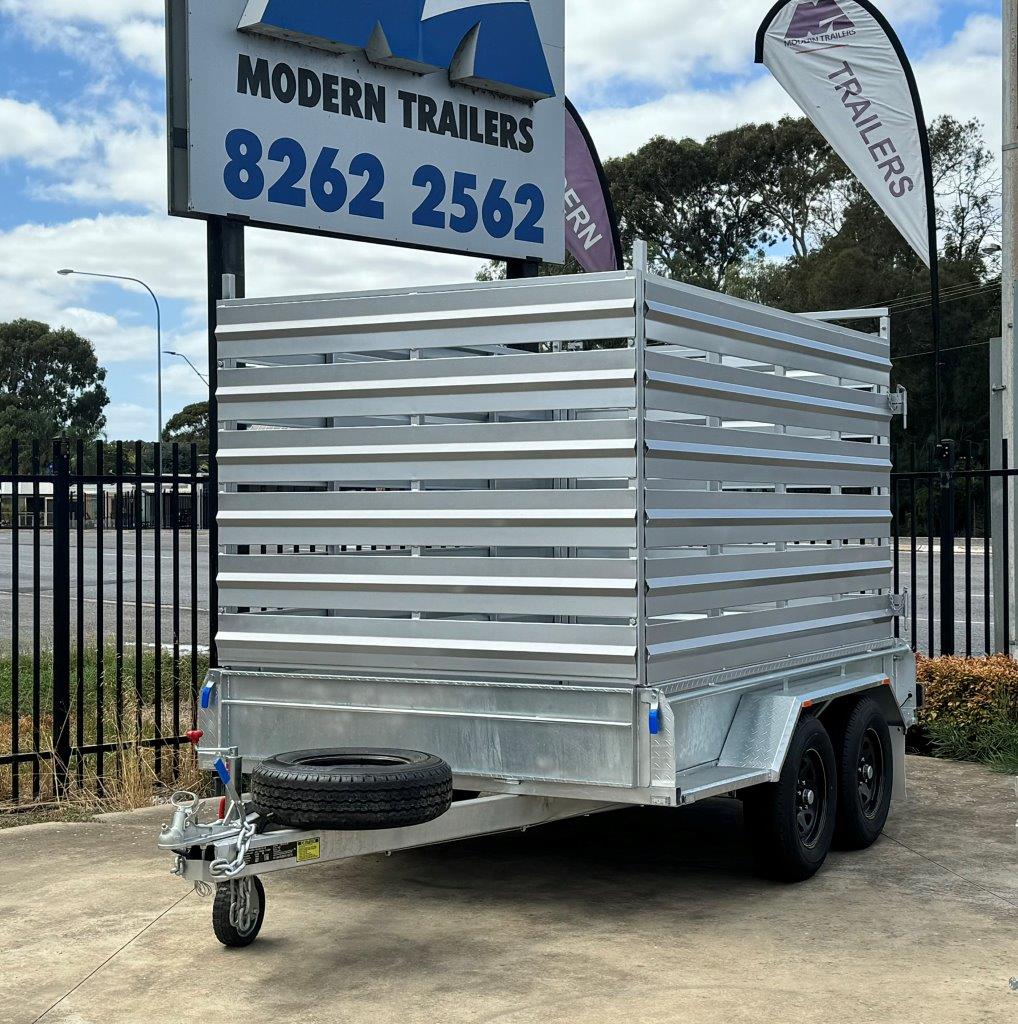Cattle Trailer Maintenance Tips for Longevity and Performance
Maintaining a cattle trailer is not just a responsibility. It is an investment in the safety and efficiency of your livestock transportation. A well-maintained trailer ensures the safe passage of animals, keeps the risk of breakdowns minimal, and upholds the value of your investment.
This guide walks you through the essential maintenance practices required to extend the longevity and enhance the performance of your cattle trailer. By adhering to these guidelines, you can ensure that when the time comes to put your cattle trailer for sale, it stands out for its superior condition.
Key Mainataince Tips for your Cattle Trailer
Regular Inspection
The cornerstone of effective cattle trailer maintenance is regular inspection. Before and after each use, it is imperative to examine the trailer for any signs of wear and tear. Check the frame, flooring, and walls for cracks, rust, or damage. Ensure the hitch system and safety chains are in good working order, and verify that brakes and lights are operational. These inspections can preemptively identify issues before they escalate, saving you time and money in the long run.
Thorough Cleaning
Post-use cleaning is crucial in maintaining your trailer’s condition. Livestock transport can leave behind waste that, if neglected, can corrode the trailer’s interior. Utilise a pressure washer to cleanse the trailer thoroughly, removing all traces of manure, urine, and other debris. Letting the trailer dry completely is essential to prevent moisture buildup, which could lead to rust and deterioration, and to ensure a disease-free environment for your livestock.
Floor Maintenance
Given its heavy-duty use, the trailer floor requires special attention. Maintenance practices will vary depending on the material—wood, aluminium, or rubber. Inspecting wooden floors for rot or damage and aluminium floors for cracks is essential. Also, rubber mats should be regularly cleaned. Proper floor maintenance not only extends your trailer’s life but also ensures your livestock’s safety and comfort.
Lubrication
To facilitate smooth operation, lubricate moving parts such as door hinges, latches, and the hitch system. Regular lubrication prevents rust and ensures ease of use, contributing significantly to the safety and efficiency of loading and unloading processes.
Tyre Maintenance
Tyres are fundamental to the safe transportation of livestock. Maintain tyre pressure at the manufacturer’s recommended levels and routinely inspect tyres for wear or damage. Ensuring your spare tyre is also in good condition is crucial for dealing with unexpected situations on the road.
Brake and Light System Checks
The functionality of brakes and lights is non-negotiable for road safety. Regular checks ensure all lights work and the brake system is in optimal condition. Professional inspections may be necessary for those not comfortable performing these checks themselves.
Rust Prevention
Rust can severely impact the structural integrity and lifespan of your cattle trailer. Regular inspections for rust and immediate treatment of any discovered spots are vital. Sanding the affected area and applying a rust inhibitor followed by touch-up paint can prevent further corrosion.
Proper Storage
When not in use, how you store your trailer can significantly affect its longevity. Ideally, keep it under a cover to protect it from the elements. If outdoor storage is unavoidable, consider a high-quality, breathable cover to shield it from weather damage.
Professional Servicing
Annual professional servicing complements your maintenance routine. A professional can conduct a comprehensive inspection and maintenance, including areas like the axle and suspension system, to ensure your trailer remains in peak condition.
Ventilation System Check
Proper ventilation within your cattle trailer is crucial for the health and comfort of the livestock during transport. Regular ventilation system checks and maintenance can prevent overheating and ensure a sufficient air supply. Inspect vents and openings for blockages, damage, or wear. Clean them thoroughly to remove dust, debris, or cobwebs that could impede airflow. Ensuring an effective ventilation system promotes animal welfare and complies with transport regulations concerning livestock.
Electrical System Maintenance
The electrical system of your cattle trailer, encompassing not only the lighting but also any power supplies for automated loading systems or internal monitoring devices, requires regular checks. Inspect wiring for signs of wear, corrosion, or damage. Ensure that connections are secure and that there is no exposed wiring that could lead to short circuits or electrical fires. An efficient electrical system is vital for operational safety and the smooth execution of loading and monitoring processes.
Load Distribution and Securing
Understanding and practising proper load distribution and securing techniques is essential for the livestock’s safety and the trailer’s longevity. Incorrectly loaded trailers can lead to uneven weight distribution, which stresses the structure and can cause premature wear or damage.
Evenly distributed weight across the trailer floor and secure livestock prevent injury during transport. It contributes to the safety of the animals and driver and helps maintain the trailer’s structural integrity, preventing issues related to overloading and imbalance.
Conclusion
Adherence to these maintenance tips guarantees not just the extended longevity and optimal performance of your cattle trailer but also the safety and well-being of your livestock. Regular inspection, diligent cleaning, and proactive maintenance are the hallmarks of a reliable transportation asset. Any cattle trailer for sale must be chosen after careful deliberation, as it reflects your operation’s professionalism and commitment to animal welfare.




